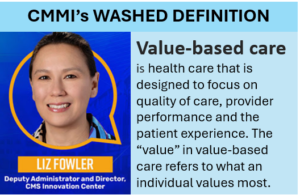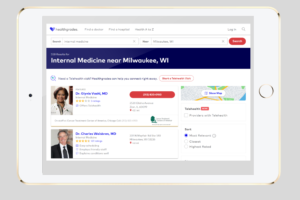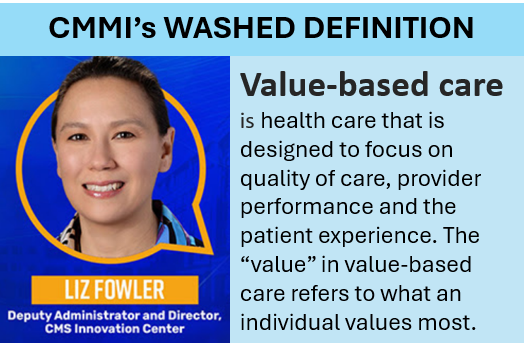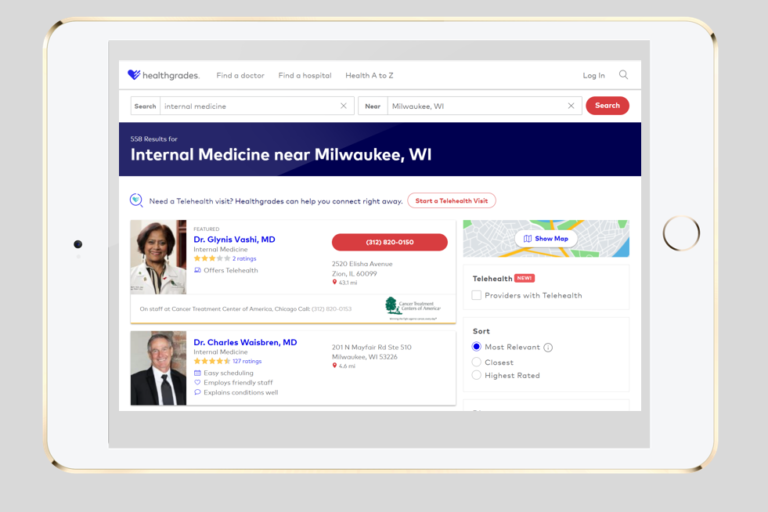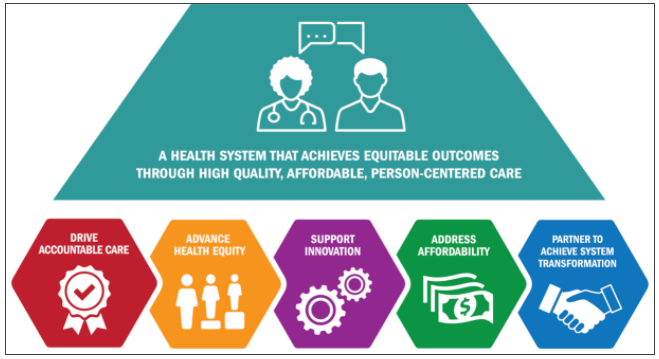Today I attended a webcast sponsored by the Bipartisan Policy Center, an organization “committed to the art of principled compromise.”
The webcast featured Farzad Mostashari, MD, ScM, the newly appointed National Coordinator for Health Information Technology, U.S. Department of Health and Human Services. He was joined in a panel discussion by Senators Tom Daschle (Democrat, South Dakota) and Bob Bennett (Republican, Utah), who is currently a senior fellow at the Bipartisan Policy Institute.Dr.Mostashari articulated the key principles that will continue to guide the Office of the National Coordinator (ONC), as well as the ONC’s “theory of change.”
ONC Principles
- Innovation will be driven by private industry & free market
- But recognize that problems with health care market require at least some amount of government action. “Do the minimum amount of government action necessary, but no less.” Government action is required to deal with the following key issues with the market:
- Assure Market Competitiveness, particularly due to high switching costs for HIT by health care providers and due to information asymmetry, where providers have difficulty understanding technology and complex service level agreements.
- Deal with Externalities, since the benefits of HIT investments do not all accrue to the providers
- Deal with Public Goods, such as health IT standards
ONC Theory of Change
- Constant attention to the goal: “Keep your eye on the prize.”
- Pragmatism and practicality: “Keep our feet on the ground.”
- Flexibility, particularly long rangeplans
- Patient centeredness – always ask
I noted that Dr. Mostashari seemed to be referencing the long-acknowledged problems with the market for health care services, and then applied that to the market for HIT, where doctoral level providers are apparently at a disadvantage in buying HIT. Although I agree that HIT purchases are complex and that health care providers have historically performed poorly in making informed decisions about HIT investments, I think that this can be better resolved through making the health care delivery market itself more competitive, forcing health care providers to become more sophisticated purchasers (and more meaningful users!) of HIT, rather than having government fix that particular problem.
Other noteworthy points made by Dr. Mostashari include:
- 65% of vendors that have HIT products that earned ONC certification have fewer than 50 employees.
- Use of EMR was stuck at around 20% for years, and recently jumped to 30%.
- Feds set goal for 20% reduction in readmits.
- Another goal is to have the patient’s information follow the patient wherever they go.
- He distinguished between the issues of interoperability of systems within a health care provider vs. interoperability of like systems between health care providers.
- He said clinician adoption is a large problem, but interoperability is a larger problem.
- Discussed the Direct project, in which the feds stated the provider-to-provider and provider-to-patient secure communication problem and convened diverse stakeholders to participate, creating a “do-ocracy”. Within 90 days, they agreed upon secure e-mail as the primary method. In another 90 days, they had developed simple common protocols. Then, in another 90 days, most of the big HIT vendors have agreed to support those protocols.
- Discussed goal of creating a “learning health care system” and the associated need for secondary use of data to evaluate treatment effectiveness and to serve public health, quality measurement. These uses are not disruptive to privacy and confidentiality concerns.
- Explained that, as technology improves, the concept of “what is de-identified” gets more difficult.
- He envisions the need for “distributed queries” where the question goes to the data. (I am doubtful of this concept, based on experience proving the need for sustained effort to clean and transform data to make it useful for valid analysis.)
- Explained the challenge of rural health care, including lack of broadband internet access. The Regional Extension Centers have an explicit mandate to address rural health care issues.
Some key points made by Senator Bennett:
- Bennett describes the “nirvana” of HIT in terms of accessibility of health information, but he describes the intended outcome as increased quality and lower cost, asserting that if quality is not increasing and costs are not being reduced, then HIT is a waste of time. He does not acknowledge that quality and cost are process transformation issues (not data access) and that there are many necessary ingredients to process transformation besides HIT.
- Bennett argued for the importance of security and privacy protections by describing the risk to patients to having diseases identified and electronically documented in terms of future loss of insurance coverage.
- Bennett told the story of the use of clinical data for analysis at Intermountain to identify the need for administering prophylactic antibiotics within one hour of an operation, but explained the externality problem: that Intermountain lost millions of dollars in revenue that was previously associated with inpatient treatment of iatrogenic infections.
Some key points made by Senator Daschle:
- Daschle said that lack of “interoperability” is the nemesis of HIT success.
- Daschle said that patient engagement starts with individuals taking responsibility for themselves, and at least partial responsibility for the cost of their own care.
- Daschle says new health care marketplace will create more choices for people, and they have a responsibility to make informed choices.
- Daschle and Bennett both advocated for individual mandate, and to begin to break the link between health insurance and employment.
Funding for Registries and Analytics?
The American College of Cardiology CEO asked for $500M federal funding for cardiology registries. Daschle said it is logical to do so, and that we are creating a new environment for that to happen. But then he said it starts with HIT, avoiding directly addressing the issue of plans for federal funding for registries and associated analytics. Bennett said he also supports such funding, and joked that he is no longer in the Senate because he is a Republican that believes that not all government spending is evil.


